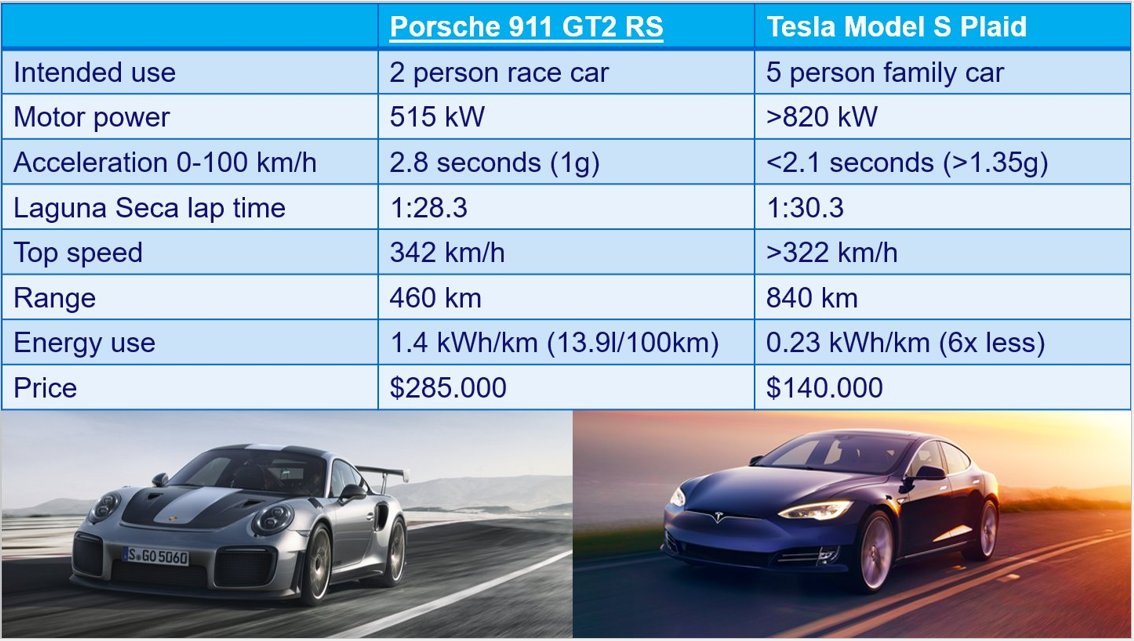
In my (Dutch) newspaper @trouw, mobility historian Vincent Vinne proclaims electric cars are unsustainable because they have lots of power and can drive fast.
Let me explain (again) why these things are actually beside the point for electric cars.
trouw.nl/opinie/waarom-…
Let me explain (again) why these things are actually beside the point for electric cars.
trouw.nl/opinie/waarom-…

Basically it's very simple: regular combustion engines get less efficient when they don't perform at their optimal power number of rotations per minute. You can see this in a BSFC plot.
On this map optimum is >250 g/kWh but it can increase to 475 g/kwh.
x-engineer.org/brake-specific…
On this map optimum is >250 g/kWh but it can increase to 475 g/kwh.
x-engineer.org/brake-specific…

So this means that a powerful engine (with a high top speed) is usually used at an optimal of say 70% of max power but only at 10% which then doubles energy use.
So historically speaking, mobility historian Vincent Vinnes is right. More power and topspeed is energy inefficient!
So historically speaking, mobility historian Vincent Vinnes is right. More power and topspeed is energy inefficient!

For a combustion engine in a practical car 35% optimal efficiency is pretty good. In the city it can easily drop to 10% or so: >200% more fuel use.
For EVs it works similarly but the impact is small. E.g. efficiency drops from 92+% to 86%: 7% more energy.
x-engineer.org/electric-vehic…
For EVs it works similarly but the impact is small. E.g. efficiency drops from 92+% to 86%: 7% more energy.
x-engineer.org/electric-vehic…

To make an issue out of the marginal extra energy use because of their top speed and acceleration betrays a fossil mindset.
(You could argue fast cars are less safe and driving at higher speeds does use more energy by the way. But these are very different issues.)
(You could argue fast cars are less safe and driving at higher speeds does use more energy by the way. But these are very different issues.)
This doesn't mean electric vehicles are optimally sustainable! By making them larger and heavier and by not sharing them we use much more energy and material than is optimal!
So the Dutch head of state travels a lot more sustainably!

So the Dutch head of state travels a lot more sustainably!


But let's put the focus where it belongs. When you want sustainable transportation, forget about making electric vehicles less powerful and slower (it hardly helps) and focus on making them smaller, lighter and shared.
/end
/end
This should have been: an engine performs optimally at around 70% so a powerful engine that is usually used at much lower power (say 10%) will use twice as much energy as optimally possible in daily use.
• • •
Missing some Tweet in this thread? You can try to
force a refresh








